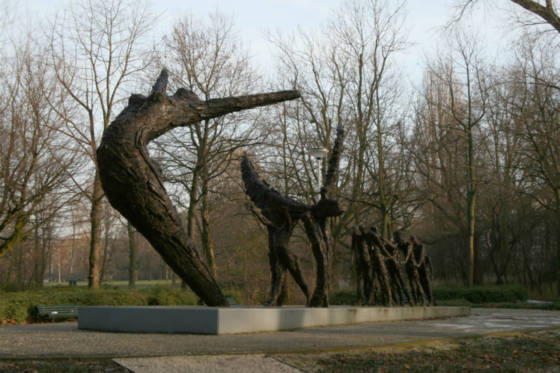Dutch to apologise for slavery, set up awareness fund: Bloomberg


The Dutch government is planning to apologise for its role in slave trade and set up a fund for projects that aim to raise awareness about the legacy of slavery, international news agency Bloomberg has reported.
Bloomberg says the fund, which may be as much as €200 million, will be made public after an official apology is made by the end of this year or early 2023. The news agency bases its claim on ‘people familiar with the matter’ but said prime minister Mark Rutte’s office has declined to comment.
Rutte is currently on a short official visit to Suriname, the former Dutch colony, and said in a speech to parliament on Tuesday that ‘the time is right for recognition’. In 2023 it will be 150 years since Dutch legislation to abolish slavery was actually enacted.
This, the prime minister said, meant ‘recognition of the horrific suffering inflicted on those who were enslaved. ‘Recognition of the struggle and resistance that there was… And, of course, recognition of the social impact of the period of slavery on the present day,’ Rutte said.
Despite pressure from two of the coalition parties, Rutte has always refused to apologise for the Dutch role in slavery, saying it would not be appropriate. However, in June, broadcaster NOS said the government would make a formal apology in the autumn.
Banks
The Dutch central bank, ABN Amro bank and the cities of Rotterdam, Utrecht and Amsterdam have all apologised for their role in slavery.
Slavery was finally abolished in the former colonies of Suriname and the Dutch Antilles on July 1,1863.
Slavery and the Netherlands: what you need to know
However, slaves in Suriname were only fully freed in 1873, since the law stipulated that there was to be a mandatory 10-year transition period. Owners were also paid compensation of 300 guilders for every enslaved person they released.
At its height in the 1770s, slavery generated over 10% of the gross domestic product of Holland, the richest of the seven Dutch provinces which made up the republic, according to social history researchers.
The income from the tobacco trade, sugar processing and shipbuilding was boosted by the use of slave labour used to grow crops on plantations, according to researchers at the International Institute for Social History.
Other professions, such as notaries and bankers, also benefited from slavery. As a whole, slavery generated some 5.2% of the Netherlands’ GDP – just slightly less than the proportion generated by Rotterdam port today.
Thank you for donating to DutchNews.nl.
We could not provide the Dutch News service, and keep it free of charge, without the generous support of our readers. Your donations allow us to report on issues you tell us matter, and provide you with a summary of the most important Dutch news each day.
Make a donation